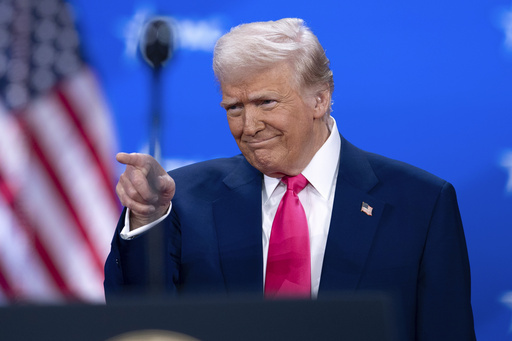In Washington, D.C., several pivotal U.S. government agencies, including the FBI, State Department, and the Pentagon, have advised their employees to disregard a recent request from Elon Musk, aiming for significant reductions in government workforce. This demand required federal workers to detail their weekly accomplishments within a tight deadline, raising concerns over potential job losses for noncompliance.
The backlash from appointees of former President Donald Trump signifies escalating disarray within the federal workforce, which has been under pressure since Trump’s return to the presidency. His administration is rapidly implementing objectives that include downsizing government operations.
As administration officials sought clarity on Musk’s directive over the weekend, its legality came under scrutiny, with some lawmakers questioning its compliance with federal regulations. Labor unions are advocating for a retraction of Musk’s request and are considering legal action against the administration for what they perceive as an attack on workers’ rights.
Within the federal landscape, reactions to Musk’s order have varied. Some departments encouraged adherence to his demands, while others advised caution. For instance, the Department of Health and Human Services, overseen by Robert F. Kennedy Jr., communicated conflicting messages to its employees. Initially, some were instructed to comply, but later communications urged them to delay any action until further notice.
Sean Keveney, the acting general counsel of the Health Department, expressed frustration over the request, noting the feeling of stress among employees who had diligently worked to further the administration’s agenda only to feel demeaned by Musk’s email. Keveney pointed out legal protections that might surround the work of agency employees and the lack of assurance regarding confidentiality for their responses.
Musk’s communication, disseminated to hundreds of thousands of federal workers, demanded reports of five specific achievements from the prior week, asserting that failure to comply by a set deadline would lead to job termination. This ultimatum drew criticism from both Democratic and some Republican leaders, particularly following a social media post from Trump urging Musk to take even more aggressive steps to scale back government.
Senator John Curtis, representing Utah, a state with a substantial federal workforce, expressed concerns about the human impact of such drastic measures. He urged Musk to exercise compassion, highlighting the real-life implications for government employees and their families.
Other lawmakers, including Congressman Mike Lawler, raised questions regarding the legal foundation for firing civil servants for not complying with Musk’s demands, although the email did not explicitly threaten terminations. Senator Chris Van Hollen, a Democrat, firmly stated that Musk’s actions might border on illegality and called for immediate action to halt what he described as an improper operation.
In a moment of mockery, Trump shared a meme on his social platform lampooning affected federal employees, featuring a caricature compiling a list of trivial accomplishments from their week. Newly appointed FBI Director Kash Patel advised his team to disregard Musk’s request for now, reaffirming the FBI’s authority over employee performance reviews.
Meanwhile, the interim U.S. attorney for the District of Columbia, Ed Martin, added to the confusion by implying a dual approach to Musk’s order, instructing staff either to comply or to formally negate that compliance. Initially, he had conveyed a positive outlook regarding Musk’s efforts.
Leadership from the Departments of State and Defense issued more definitive responses, clarifying that responses to Musk’s requests were unnecessary and outside normal procedures. Tibor Nagy, from the State Department, emphasized that employees were not bound to report outside their established channels, while the Pentagon echoed similar guidance.
The president of the American Federation of Government Employees called for the administration to deny Musk’s request and issue an apology to federal workers, labeling Musk’s actions as inappropriate and overreaching.
In the context of an ongoing reduction of federal employees under Trump’s administration, including departures due to a “deferred resignation” plan, many workers face uncertainty about their employment status.
Musk defended his request as a “basic pulse check,” alleging widespread inactivity among government employees and even suggesting potential instances of fraud. However, he has not substantively backed these claims with evidence.
Alongside these developments, thousands of federal employees are expected to resign imminently, with a notable departure of staff from the U.S. Agency for International Development as part of Trump’s broader personnel strategy.
Lastly, the administration confirmed plans to eliminate over 1,600 staff positions based in the U.S. Following a judicial ruling, this action intensifies the ongoing shifts within the federal workforce initiated under Trump’s leadership.
